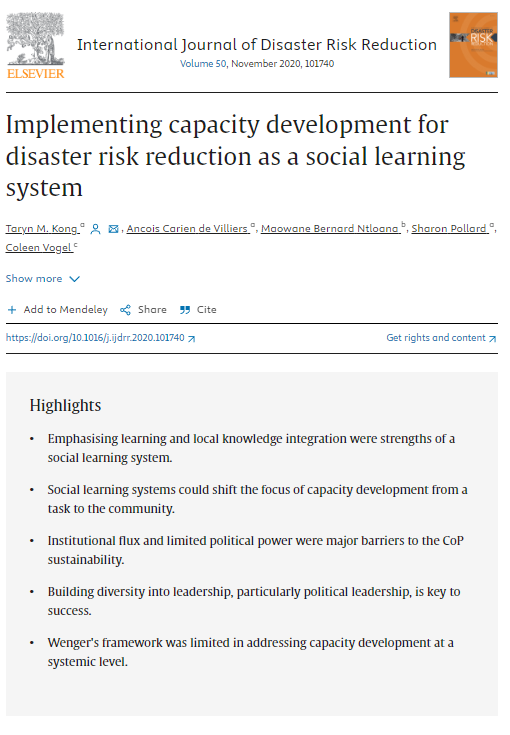News
Implementing capacity development for disaster risk reduction as a social learning system
Abstract: Climate change can lead to changes in the frequency, intensity, spatial extent, duration and timing of weather extremes, which pose disaster risks to exposed and vulnerable communities. Capacity development is a common disaster risk reduction (DRR) action and a climate change adaptation. There is a knowledge gap on what is involved in and what works in practice of bottom-up approaches to develop DRR capacity that incorporates local ownership, local knowledge and learning. The participatory research described in this paper applied Wenger’s conceptual framework for social learning systems to establish a community of practice (CoP) for DRR between 2016 and 2017 in Maruleng Local Municipality, South Africa. Planning documents, event and reflection notes, office reports and artefacts were initially coded based on key concepts of the framework and further coded based on emerging sub-themes. The results showed that the framework provided a useful structure for designing capacity development that emphasises learning and organically integrates local knowledge. Structuring capacity development as a social learning system has the potential to make the CoP’s learning effort self-sustaining and shift the focus of capacity development from a specific task to a long-term common interest shared by CoP members. The framework, however, did not provide adequate consideration for institutional challenges such as high leadership turnover and limited political power of the CoP, which impacted alignment, mutuality and membership – all of which are important to sustaining the CoP for capacity development.
You can read the full article here: https://www.sciencedirect.com/science/article/abs/pii/S2212420919315547


